Here's What You Missed – 21st Century Grant Applications
 April Educational Webinar Take-Aways - Be compelling, but concise!
April Educational Webinar Take-Aways - Be compelling, but concise!
Some days I am ready to throw my computer out the window if I see one more grant application ask me to provide my organization’s mission, history and goals in 500 characters or less.
*BREATH DEEPLY*
We have all felt this way at one point or another, but online grant proposals are here to stay, and we need to adapt. That doesn’t make them any less frustrating, exasperating or daunting. There are steps we can take to make online grant applications more effective with fewer words, however.
AFP members and guests logged on April 21 to view the AFP Webinar Watch Party: 21st Century Grant Applications. Speaker Diane Gedeon-Martin from the Write Source, LLC shared tips with viewers about how to identify key elements that will grab the attention of grant reviewers, using simple, direct language to make your point, and editing your proposals for strong content. Tips included:
Avoid clauses, particularly introductory clauses. For example, “Athletes must exercise every day if they want to win” is better than “If they want to win, athletes must exercise every day.”
Eliminate redundancy. Some words can be removed entirely (‘that’ is a common unnecessary word). Avoid using the same word twice in the same sentence. Some resources to help you change up wording include:
- Word Web – free dictionary/thesaurus, www.wordwebonline.com
- Thesaurus.com (Side note: I use the free app on my phone often)
- Microsoft Word Thesaurus
Use a deductive writing style. The topic sentence or first sentence of every paragraph needs to convey the idea or concept discussed. It should also fit on a single line from margin to margin.
Edit your work and be sure to write tight. Your average sentence should have no more 15 to 17 words. Use active voice versus passive - passive voice should be less than 10% of your narrative. Microsoft Word offers review features that can help monitor your readability scores. Your proposal should have a Flesch Reading Ease score of ~40. The higher the score, the easier it is to read. It should also be written at a Flesch-Kincaid Grade Level at 10.5 or 12.
Lastly, even though we are dealing with shortened, impersonal formats to request grant funds, our proposals must still express our intent, intended impact, and speak to the needs and wants of the grantmakers. Reviewers of our grants proposals are people, not computers – even though the ‘computer’ is dictating your character/word count. You can provide a high-quality narrative that offers a compelling justification; just do your best to be concise!
If you are interested in learning more about grants and networking with other grant-seeking professionals, the AFP of Southeastern Wisconsin hosts a Special Interest Group for grant writers. We are not meeting in person at this time but continue to keep in touch via Zoom. For more information, contact group moderator Heather Willette at heather.willette@bethesdalc.org.
Have a topic idea for future professional development opportunities? Contact Julie Cordero from the AFPSEWI Education Committee at juliewcordero@gmail.com.
